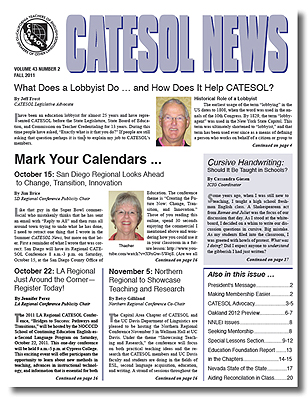

Mentorship: A Mentee's Quest
“Some people like to lord over what little power they have,” remarks a good friend and colleague. This particular colleague of mine possesses a great command of his discipline, and earns soaring praise from both faculty and students. In 2001, our college awarded him outstanding teacher of the year, an honor he received as the college’s youngest instructor to receive this award. His comment resonates with me, as I try to define and execute the meaning of mentorship.
Just like many of you, I too have both witnessed and personally experienced what I tend to call self-inflated, academic posturing. This element exists as one of the byproducts of academia. You know the type of colleague I’m writing about. These colleagues, for a variety of different reasons, want people across their campus to know that they possess a heightened degree of knowledge, power, and/or influence.
I’m a member of our college’s mentorship committee, so I have mentored a few other part-time college instructors. I’ve also team-taught and mentored several of Cal Poly University’s CATESOL Program students, and have personally sought out mentors for my own professional growth. As a result, I’ve concluded that the best mentorship experience is a bottom-up process, not a top-down process.
The best mentor is not necessarily assigned through academic hierarchy, seniority, or a predetermined mentor/mentee match-up. This top-down paradigm officially exists across many campuses and it’s also a great place to start. I, too, am participating in this top-down paradigm because I’m a member of our colleges’ mentorship committee so I help match up veteran instructors with the newly hired. However, I’m convinced that the best mentorship experience lies in the mentee selecting his/her own mentor for reasons that most compel the mentee.
We all require motivation and inspiration in our professional life. Consequently, the responsibility lies with us to seek out that individual who stimulates us most. This individual(s) might be from another division or discipline. Your mentor may even be teaching at another college or university. Your mentor may even be a former university professor. For you full-time instructors, the possibility of your mentor being a part-timer also exists. Whatever the case may be, people inspire us in different ways. Professional growth arises from our interactions with a wide range of folks. The best mentor is not necessarily assigned through academic hierarchy, seniority, or a predetermined mentor/mentee match-up. Only you can decide who best mentors you. Happy mentor seeking!

Home | ESL |Writing & Publishing| Halderman Photographs | Real International Stories | Textbooks | anthonyhalderman.com | Halderman Award | E-mail
Mentorship: A Mentee's Quest, composition in ESL, writing for ESL students, ESL writing and composition. CATESOL, CATESOL News, ESL newsletter, newsletters, Anthony Halderman, anthonyhalderman.com, ESL, English teacher, English instructor, real stories, educational tool, education, English instruction, ESL information, Cuesta College, San Luis Obispo, California, reading textbook, learn english, online web page, on-line quizzes, Halderman faculty page, Kendall Hunt publishing, real international stories, ESL lessons, english lesson, interesting textbook, ESL articles, ESL English research, international perspective, student-generated stories, students essays, student compositions, real people, unique stories and experiences, Halderman photographs, SLO, photos of california, photos of the central coast, travel, traveling,